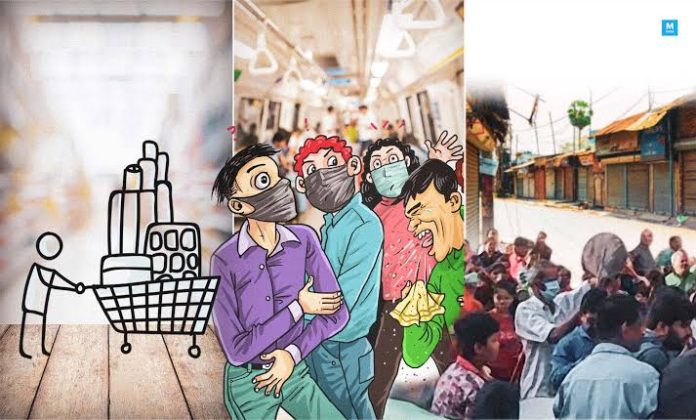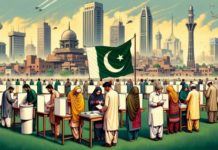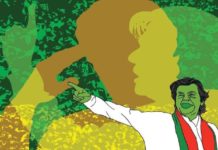The Coronavirus cases in Pakistan have surpassed 180,000 with more than 3000 deaths. Many politicians, civil servants and health staff are included in the list of the unfortunate.
The pandemic has a devastating impact on the physical, social and psychological lives of the people. Furthermore, the lockdown has exacerbated the issue of poverty in Pakistan. Pakistan is caught between the devil and the deep blue sea.
Although the lower class is the most vulnerable but the ramifications of the lockdown are far reaching, which distresses all strata in the long term. The loss of business (import and export) during the pandemic has become grave. Education has come to a standstill. Youngsters are confined to their homes.
The hospitals have become the danger zone and many regular patients are facing immense issues. The once crowded streets and restaurants lay empty. Cases of depression and other mental disorders are increasing.
The best and the most awaited protection measure against the virus is a vaccine but it remains months away. The second most effective way is social distancing and by ensuring all the safety protocols. According to a study of University of Sydney if social distancing is adhered by 90 % of the population, the spread of coronavirus can be limited in 13 to 14 weeks.
In Pakistan, lockdown was imposed to contain the spread of virus but it didn’t turn out to be a successful one. A snap poll conducted by Ipsos showed that only 3% of Pakistanis were clearheaded about the virus. This can be attributed to the enormous conspiracy theories that are surrounding the coronavirus. 42% are labelling it as a foreign conspiracy, 33% calling it a laboratory-made virus and 42% having misconception that it affects only the people above 55 years of age. Some are levelling allegations that many patients are injected with poison in quarantine centers and hospitals.
Disinformation breeds chaos and confusion. And a state of confusion leads to reckless decision making, which can result in a fiasco. Furthermore, the ignorant attitude, irresponsible behavior and hypocrisy of the citizens of Pakistan have contributed in plunging the country deep in the mud hole. For years now this rhetoric has been selling that the government is responsible for all the woes of the country while failing to realize the myriad responsibilities as a citizen.
This could be vindicated from the public response after the lockdown was imposed. Initially, in the urban areas people followed the SOPs but later the impatient public could no longer hold in. In the rural areas they were never followed. On the contrary, people laughed it off and considered it as a sinister design of the government.
The mosques remained open with no regard to the SOPs, markets were as busy and the social gatherings never really stopped.
The government had issued directives on control and mitigation strategies for reducing the spread of the virus. The nationwide lockdown that included closure of educational institutions, shopping malls, and other gatherings signaled an emergency situation in the country.
From recorded voice messages on calls to the propagation of messages through mainstream media there has been quite an aggressive campaign to inform masses. Cannot it be said that the people turned a blind eye towards all these indicators and messages?
It is an easy resolve to blame others but the most significant factor that makes real change possible is the resilience of a common man. This comes with a sense of responsibility and the desire to develop a stronghold society. The stature of a society or a nation is set up by the common traits of its people and their susceptibly to change.
Not disregarding the loopholes at the government end, but are they the only ones to be blamed? What needs to be understood is that the citizens of a nation must respond actively and work in tandem with the government for the benefit of their own state. If we want change in circumstances and a bright future for Pakistan, we have to change ourselves and adhere to the responsibilities of a good citizen, by being culpable of our actions first.
In this situation, a responsible citizen is bound to stay informed of the issues affecting the community and also to propagate the correct message to those who remain unaware. The government orders must be adhered to and all the safety measures must be taken for maximum protection of oneself and the society. Then comes the responsibility of keeping a vigilant eye on the policies and response mechanism of government, in case they are not performing their duties well.








